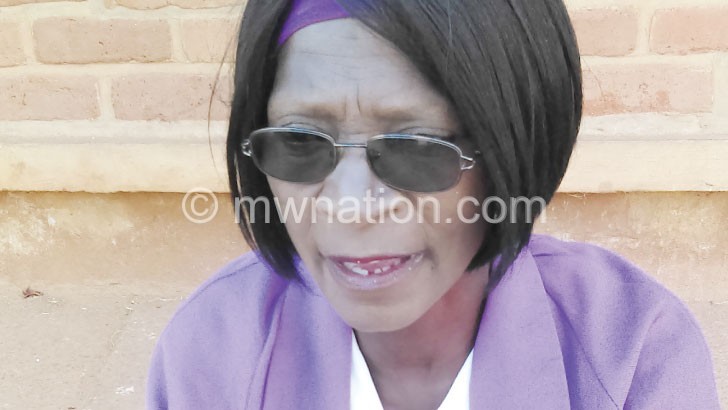Giving girls a second chance
For 17-year-old Jessie Nkhoma from Buza Village, Traditional Authority (T/A) Lukwa in Kasungu, each farming season comes with a demand for her time.
In rural Malawi, engaging children in farming is a norm. Jessie says she wakes up around 4am everyday to join her parents in the fields. They are smallholder farmers and this is what keeps them going. They grow crops such as maize, groundnuts and tobacco.
However, their harvests have been fluctuating and the family has been struggling to keep its children in school. The worst years for smallholder farmers were 2015 and 2016 when the country was hit hard by heavy floods and dry spells. In 2016, Jessie, who was in Form Two at Chilanga Community Day Secondary School (CDSS), was forced out of school due to lack of school fees.

She says her parents said she would only miss few classes, but she ended up staying home the entire academic year.
“My parents had a lot of farming obligations which needed funds and I could not finish that school year,” explains Jessie, a fifth born in a family of eight. “I even gave up that I would return to school.”
Her story mirrors the challenges most girls raised by smallholder farmers face. The unpredictability of farming business deprives many girls an opportunity to go to school. In cases where the family has little money, the gamble is on what to prioritise—farm inputs or school fees.
While many girls who dropped out of school due to lack of school fees live hopelessly at home, Jessie’s future is saved, thanks to Girls Empowerment Network (Genet) and Oxfam Malawi. The two organisations intervened through a project called Improving Secondary Education Completion Rates Among Females And Other Vulnerable Students. The project is being implemented in Dowa, Balaka, Lilongwe, Kasungu, Mchinji and Phalombe. It provides school bursaries and bicycles for girls who walk long distances to school.
“I am happy to be back in school,” says Jessie, who wants to become a nurse.
She now sees the future with optimism.
“I used to miss classes due to lack of school fees and sometimes had to do piece work to find money for my school needs,” she recalls. “All this is history now.”
But while Jessie is happy, many girls are rusting at home. The opportunity to stay in school missed them for good. Those who completed primary school face hurdles to complete secondary education due to lack of school fees. A study by the United Kingdom Research and Innovation says Malawi registers a high enrolment rate at Standard One but loses over half of the pupils by the end of Standard Six. It is even worse by the end of Form Four.
Genet and Oxfam say they want to address this challenge and improve the number of students who start and complete the education cycle and they are targeting girls and other vulnerable students in secondary schools. The organisations work with Mother Groups which help in identifying needy girls in communities.
In Kasungu, T/A Kaomba Mother Group member Esnath Mbewe says since they started working with Oxfam and Genet, pregnancy and giving birth are no longer excuses to keep girls out of school.
“Now girls are able to go back to school after having a child. My hope is that those who went back to school will complete their studies and become self-reliant to support their families,” she says.
While most projects focus on girls only, this project also engages boys in the campaign, considering that pregnancy is a product of a male and female.
Mavuto Phiri from Kaning’a Village, T/A Kaomba is one such male champion. Together with others, they are responsible for 15 villages where they preach the importance of education and the need to avoid early pregnancies. He says the progress has been good.
One of the themes of the Sustainable Development Goals (SDGs) urges all countries to ensure that no one is left behind. Goal number IV has 10 targets which encompass different aspects of education tied to ensuring that everyone has access to quality education and an opportunity to complete the education cycle.
While Oxfam deputy country director Lingalireni Mihowa feels their interventions are giving new hope to many girls, she feels the organisation needs to do more than bursaries and bicycles.
“We need to strengthen our efforts with traditional leaders in changing the social norms that are making girls drop out of school,” she says.
Mihowa further notes that more male involvement would be helpful to try to address the inequality gap.
“We need to change the way people think. Boys should know that there is a better and progressive




